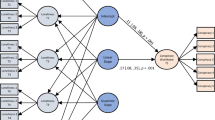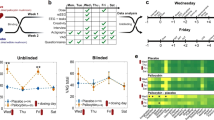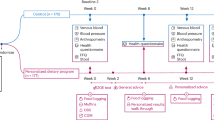Abstract
Objective: In this review we comment on the media, in particular advertisements and the internet, using religious and moralistic motifs in connection with eating and their possible role in promoting modern-day ‘nutritional’ consumerism and fundamentalism (diet, discipline and discipleship).
Method: We have reviewed historically the concept of holy anorexia and have analyzed the pictorial and language content of some representative advertisements.
Results: Words used include ‘temptation’, ‘decadent’, ‘heaven’ and ‘purity’ and suggest a connection with eating and moral values. They also imply eating as either heaven or sin, to be yielded to in both circumstances.
Conclusion: Such messages identifying eating with guilt or reward could precipitate ‘atypical’ eating disorders in vulnerable subjects, invoking the historical associations with extreme religiosity and anorexia. It is not clear how these ‘fundamentalist’ trends developed but health educators should be aware of them in dealing with at-risk subjects for eating disorders.
This is a preview of subscription content, access via your institution
Access options
Subscribe to this journal
Receive 12 print issues and online access
$259.00 per year
only $21.58 per issue
Buy this article
- Purchase on Springer Link
- Instant access to full article PDF
Prices may be subject to local taxes which are calculated during checkout
Similar content being viewed by others
References
Babylonian Talmud, Hebrew-English Edition (1963–1966). ed. I Epstein, translations M Freedman, M Simon. Tractates Gittin, p56a and Kiddushin, p81b London: The Soncino Press
Banks, CG (1992). ‘Culture’ in culture-bound syndromes: the case of anorexia nervosa. Soc. Sci. Med., 34, 867–884.
Bell, R (1985). Holy Anorexia, Chicago, IL: University of Chicago Press
Bergh, C & Sodersten, P (1998). Anorexia nervosa: rediscovery of a disorder. Lancet, 351, (9113) 1427–1429.
Bruch, H (1973). Eating Disorders: Obesity, Anorexia Nervosa, and the Person Within. New York: Basic Books
Edelstein, EL (1989). Anorexia Nervosa and Other Dyscontrol Syndromes, Berlin: Springer
Foucault, M (1979). Discipline and Punish, New York: Random House
Garner, D, Vitousek, K & Pike, K (1997). Cognitive–behavioral therapy for anorexia nervosa. InHandbook of Treatment for Eating Disorders, ed. Garner and GarfinkelNew York: The Guilford Press
Halmi, K (1985). Classification of the eating disorders. J. Psychiat. Res., 19, 113–119.
Kleinman, AM (1977). Depression, somatization and the ‘New Cross-Cultural Psychiatry’. Soc. Sci. Med., 11,
Kleinman, AM (1995). Writing at the Margin: Discourse between Anthropology and Medicine, Berkeley, CA: University of California Press
Mogul, SL (1980). Asceticism in adolescence and anorexia nervosa. Psychoanalyt. Study Child., 35, 155–175.
Prince, R (1985). The concept of culture-bound syndromes: anorexia and brainfag. Soc. Sci. Med., 21, 197–203.
Ritenbaugh, C (1982). Obesity as a culture-bound syndrome. Cult. Med. Psychiat., 6, 347–361.
Russell, G & Treasure, J (1989). The modern history of anorexia nervosa: an interpretation of why the illness has changed. Ann. NY Acad. Sci., 575, 13–27.
Vandereycken, W & van Deth, R (1996). From Fasting Saints to Anorexic Girls: the History of Self-Starvation, New York: New York University Press
Weber, M (1992). The Protestant Ethic and the Spirit of Capitalism translated by Talcott Parson Guernsey: The Guernsey Press
Wilber, C & Colligan, R (1981). Psychologic and behavioral correlates of anorexia nervosa. J. Dev. Behav. Pediatr., 2, 89–92.
Author information
Authors and Affiliations
Corresponding author
Rights and permissions
About this article
Cite this article
Griffin, J., Berry, E. A modern day holy anorexia? Religious language in advertising and anorexia nervosa in the West. Eur J Clin Nutr 57, 43–51 (2003). https://doi.org/10.1038/sj.ejcn.1601511
Published:
Issue Date:
DOI: https://doi.org/10.1038/sj.ejcn.1601511
Keywords
This article is cited by
-
Eating disorders and the Internet: cure and curse
Eating and Weight Disorders - Studies on Anorexia, Bulimia and Obesity (2006)



